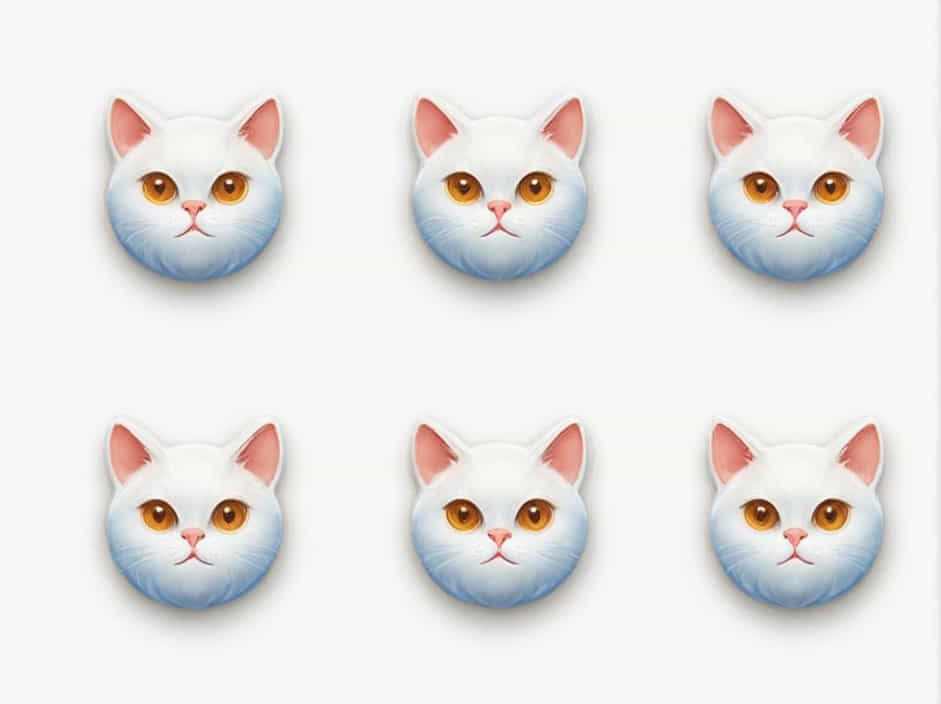Cats communicate in many ways, from gentle purring to sharp meowing. But one of the most dramatic sounds a cat can make is a yowl. This loud, drawn-out vocalization often sounds eerie or distressed, leaving many cat owners wondering what it means.
Understanding why cats yowl is essential for pet owners, as it can indicate anything from loneliness to serious medical issues. In this topic, we will explore what a cat yowl sounds like, the different reasons cats yowl, and what you can do to address excessive yowling.
1. What Does a Cat Yowl Sound Like?
A cat yowl is a long, drawn-out, and often wailing sound. It is usually louder and more intense than a typical meow. Some describe it as:
- A deep, mournful wail
- A stretched-out, howling meow
- A high-pitched moan or screech
Unlike meowing, which is short and rhythmic, yowling tends to be continuous and emotional. It may rise and fall in pitch, making it sound even more dramatic.
2. Common Reasons Why Cats Yowl
Cats yowl for various reasons, ranging from natural instincts to underlying health issues. Below are the most common causes of cat yowling.
a) Mating Calls (If Not Spayed or Neutered)
Unspayed female cats in heat and unneutered male cats often yowl loudly as part of their mating behavior. This yowling is:
- High-pitched and repetitive
- Often heard at night
- Accompanied by restless behavior
If your cat is not fixed, yowling during mating season is a natural occurrence. Spaying or neutering your pet can significantly reduce this behavior.
b) Territorial Disputes and Aggression
Cats are highly territorial animals, and yowling can be a way of warning other cats to stay away. This type of yowl:
- Is lower-pitched and aggressive
- May be accompanied by hissing or growling
- Often happens when another cat is nearby
If you have multiple cats, yowling may be a sign of tension or a power struggle between them.
c) Attention-Seeking and Loneliness
Some cats yowl when they want attention. This could mean they:
- Feel lonely, especially if left alone for long periods
- Want food or playtime
- Are bored and seeking interaction
Older cats, in particular, may yowl more at night due to confusion or a need for companionship.
d) Pain or Medical Issues
Excessive yowling can sometimes be a sign of pain or illness. Some medical conditions that can cause yowling include:
- Hyperthyroidism: This condition increases a cat’s energy levels, leading to excessive vocalization.
- Kidney disease: Cats with kidney issues may yowl due to discomfort.
- Arthritis or injury: If a cat is in pain, it may yowl when moving or being touched.
If your cat suddenly starts yowling more than usual, it’s best to consult a vet.
e) Cognitive Dysfunction in Older Cats
Senior cats may develop feline cognitive dysfunction (FCD), which is similar to dementia in humans. Symptoms include:
- Disorientation and confusion
- Yowling, especially at night
- Changes in sleep patterns
Providing a calm, familiar environment and consulting a vet for possible treatments can help reduce yowling in older cats.
f) Stress and Anxiety
Cats can become stressed for various reasons, leading to excessive yowling. Common stress triggers include:
- Moving to a new home
- A new pet or baby in the household
- Changes in routine
Providing a safe and quiet space can help reduce stress-induced yowling.
3. How to Stop Excessive Yowling
If your cat’s yowling becomes too frequent or disruptive, consider these solutions:
a) Identify the Cause
First, observe when and why your cat is yowling. Is it due to hunger, stress, or a medical issue? Addressing the root cause is the best way to stop excessive vocalization.
b) Meet Their Needs
Make sure your cat has everything it needs, including:
- A consistent feeding schedule
- Plenty of play and interaction
- A clean litter box and comfortable sleeping area
c) Provide Mental Stimulation
Bored cats yowl more often, so keep them engaged with:
- Interactive toys
- Scratching posts
- Window perches to watch outside
d) Keep a Nighttime Routine
If your cat yowls at night, try:
- Giving them a late-night meal to keep them satisfied
- Playing before bedtime to tire them out
- Keeping a small nightlight on if they seem disoriented in the dark
e) Consult a Veterinarian
If your cat’s yowling is sudden or excessive, a vet checkup can rule out medical issues.
A cat’s yowl is a powerful and expressive sound that can indicate a range of emotions and needs. Whether it’s a mating call, a sign of pain, or just a cry for attention, understanding why your cat yowls is key to addressing the behavior.
By paying attention to their needs and providing a supportive environment, you can help reduce excessive yowling and ensure your cat feels happy and secure.
